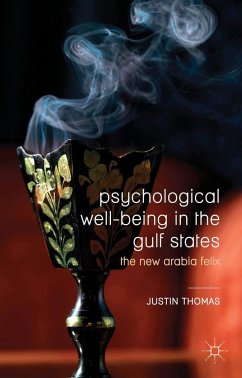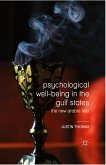"Justin Thomas shows that modern psychiatric and psychological research provides a useful framework for understanding the wellbeing of people in the Gulf states, but only when adapted to take into account the unique cultural and historical circumstances in which the Gulf's citizens live out their lives. This book therefore provides an excellent demonstration of how psychological and cross-cultural perspectives must be brought together. I strongly recommend it, not only to mental health professionals in the region, but also to those elsewhere who may be curious about the extent to which psychiatric and psychological theories can be extended beyond North American and European societies." - Richard Bentall, University of Liverpool, UK
"This is a unique work, one of the very few books that deal with psychological issues within the cultural context of the Arabian Gulf region. I particularly appreciated the culturally grounded cases that introduce some of the chapters. Overall, I strongly believe this is a valuable reference for psychology students, faculty, researchers, and practitioners." - Associate Professor Fatima Al-Darmaki, Zayed University, UAE
"This is a unique work, one of the very few books that deal with psychological issues within the cultural context of the Arabian Gulf region. I particularly appreciated the culturally grounded cases that introduce some of the chapters. Overall, I strongly believe this is a valuable reference for psychology students, faculty, researchers, and practitioners." - Associate Professor Fatima Al-Darmaki, Zayed University, UAE








